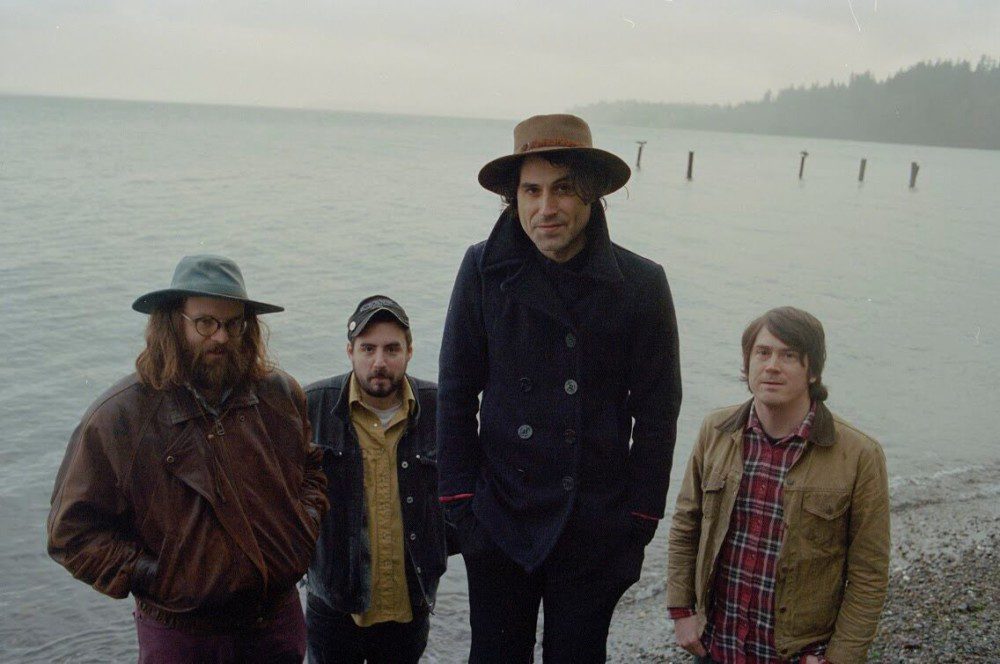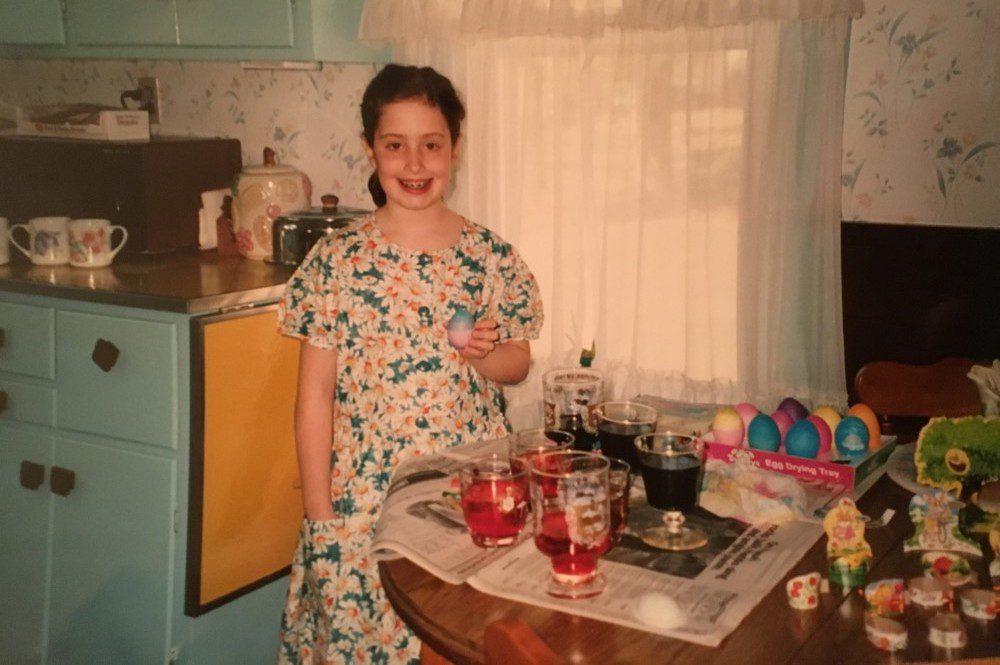PLAYING SEATTLE: PAMPA Bridges Cultures on La Contumacia

To Moon Baillie, an immigrant from Buenos Aires and the lead singer and songwriter of Seattle-band PAMPA, to be an expat is to “look at yourself, where you come from, understand it, digest it, and express it” in order to add to your new home. For Baillie, writing songs for PAMPA has been a vehicle of self-exploration, and the reason PAMPA’s sound on the whole is a “cultural salad,” Baillie said.
It’s a mighty good “salad”—PAMPA, which first formed in 2017, seamlessly combines Seattle’s low-fi melancholy with the ’70s rock storytelling of Neil Young and the exuberance and bilingualism of Latin music.
PAMPA’s sophomore album, La Contumacia, which drops on October 11th, is a good example. La Contumacia means “contempt” or “stubbornness” in Spanish—and as he traverses a psych-rock desert, rich with mirage-like cymbal kicks and harmonizing guitars—a battle inside Baillie boils over. Throughout the new release, Baillie’s voice cries out in English and Spanish, accented with bursts of trumpet and accordion, while jangling guitar harkens back to classic American pop/rock melodies. La Contumacia is the sonic portrait of an Latin immigrant in Trump’s America simmering in toil and triumph as he straddles two cultures.
The release show for the new album will be at the Sunset Tavern on October 12, at 9 p.m. Before the show, read about the making of PAMPA’s La Contumacia, how the members met at Seattle music store Trading Musician, and Baillie’s desire to cultivate more appreciation for Latin culture in America.
AF: How did PAMPA meet? What made you and the other members want to collaborate musically?
MB: Steve Lykken (drums) and myself are the original members. We met while working at The Trading Musician. I remember he was wearing a trucker hat with the old Motown label that is on the vinyl, and I knew he would understand. Kerrick Olson came through the Quiet Ones connection. During our rotating cast of bass players, John Totten took the role for a bit, and we brought him on board. We have a great back and forth interaction as singers and guitar players that continues to grow. I met Nate Rogers at The Trading Musician too, and loved him right away. His perspective on harmony as a keyboard player has added an enormous amount of arrangements to our music. He joined the band weeks before recording In the Flatlands so that is how good our chemistry is. He joined a year after Kerrick. John Carlson was the bass player on In the Flatlands but left for school after tracking La Contumacia. I have known John for a long time, and his minimal, and a tad punk approach to bass playing, was an element we were looking for in the early days; that punk-folk dynamic. An example would be “Where Do We Go Now” from the first record. Jack Peters from Loose Wing has joined the band as a permanent member this last summer. I met him when he was playing bass for Mindie Lind, and really like his awareness. He serves the song very well. I still enjoy said awareness a lot.
AF: Why did you choose the name Pampa? What’s it mean?
MB: When I lived in NYC, I use to spend evenings at the National Museum of the American Indian. There I learned that “Manhattan” comes from the Leni Lenape word, the indigenous people of the Northeastern Woodlands, “Manahatta,” meaning “land of many trees.” I was intrigued by this, and decided to look for an Argentine equivalent. “Pampa” means “plains, or flatlands” in Quechua, an indigenous language derived from the Peruvian Andes.
AF: Moon, you’re from Buenos Aires and still living there part-time correct? Tell me about living there, and in Seattle, and how that contributes to your creative process?
MB: I am indeed a Porteño. I do not live part-time there, but I’ve taken five, six month-long trips to it. I believe I became more of an Argentine living in the states, merely because of the perspective on the cultural media eclipse that is the image other cultures have of America. Buenos Aires is an amazing city. Unpredictable, and exciting. Like a book, you can’t wait to turn to the next page. Constantly. A mother of cultures that is different every time I go, and it constantly brews.
Seattle is my home. If the world is mad, I can smell the ocean, or get lost in the woods. Be in a moody day, and relate to it. Here the weather is emotional, and the people harmonious. I dig the PNW a lot. I respect its peace from which I never cease to learn. I think it all transpires into our music. Our strength is that we are a balanced mix band. Even our songs in Spanish, local folks can relate to the music, opening other channels. I write through Osmosis, and I am from here now. I got here in 1997.
AF: Why did you first come to Seattle, and decide to make music here? What are your thoughts on the Seattle arts scene, as compared to Buenos Aires and other places you’ve experienced?
MB: I came to Seattle through Cornish College of the Arts, so my community was strong. I was enveloped by progressive views that challenged, and changed my concepts. I feel it was good to leave Buenos Aires because I was able to be more independent, and become myself here. I especially sense that now that I am older. I was raised in Buenos Aires, but I am still learning from Seattle. I lived in NYC for two years, and I came back because I felt more at home with the Seattle community.
AF: I’m really interested about how heritage plays into Pampa’s sound. Are there particular musical tropes or themes from Latin culture that you like to meld with your melancholy Seattle indie sound?
MB: I think there is a strong bluegrass and folk heritage in the PNW. There is a song in the new record, and is currently out in Spotify, named “Maniobrando” that is a great example of how we write. Steve wanted to play with different rhythms, and we were listening to Brazilian batucadas, and Uruguayan candombe. I was thinking about the definition of folk fusion, and got it down to the suspensions on Neil Young’s intro chords to “Old Man.” The melody was inspired by a famous tango by Carlos Gardel named “Por una cabeza.” Leilani Polk from The Stranger said about the song “… darkly-urgent Crazy Horse-vibing rock.” All these create a cultural salad that is very PAMPA.
AF: By the same token, in what ways does this album—and Pampa’s sound in general—belong to Seattle?
MB: This record has matured in sound. It is more inclusive, yet in a similar direction, and continuing where the previous record is going. To me, to be an American, I gotta be an Argentine. Being an immigrant, rather than trying to fit, is adding to the whole. To do this, you have to look at yourself, where you come from, understand it, digest it, and express it. It’s a very Seattle thing to be progressive. In the time that I have lived here I have seen this place grow non-stop. PAMPA is a product, or a result of that growth. In the last couple of years there has been a strong surge of unique Latino pop culture in the States. Strong like never before. We feel very identified with this circumstance, because we are a blend of cultures. All PAMPA members but me, are originally from here.
AF: La Contumacia is your sophomore release. Tell me a bit about the process of making the album, and how it builds on your debut full-length, In the Flatlands?
MB: The process of La Contumacia was more of a group writing than the first one. I still write the songs, but we truly started expanding harmonies and adding arrangements. On the first record, particularly the first side, it sounded a bit more one dimensional. On the second side you get hints of where we are going.
The other strong element of this record is all the guest musicians. We discussed arrangements, but ended up working with the musicians in the studio. A lot of the ideas you hear on the record where suggested by them, and make some of my favorite moments.
We starting tracking the band live to tape with Johnny Goss, who recorded La Luz and Lonesome Shack among others, at Dandelion Gold late November 2017. Then I went on a five month trip to South America. The second set of sessions took place around May of 2018 with all the guest musicians. The sessions were loose, and the need dictated the direction, rather than a model. Working with Johnny is always productive, a learning experience, and a pleasure.
AF: What goals did you have for the album going in? What was the most challenging part of making this album?
MB: We sensed a need to step it up. We are constantly growing, and we felt the need to mature. It all happened naturally, though. The only goal we set out to achieve was to record, and put out a record. We didn’t even think about us liking it or not, because we already believed in the songs. We did set out to work more on arrangements, and guest musicians. We explored musician options, and worked on it quite extensively.
I’m going to be honest: the most challenging thing about putting out an album to me, is the expectation, and the financial push. We invest a lot of ourselves into sharing something we strongly believe in, and we are extremely proud of how we stepped up to the challenge. Truly, bands that endure the business side of things, and continue, are the ones that last.
AF: The press materials for this album said: “each of the songs… focused on pinpointing a specific moment and feeling of American experience.” How did writing these songs help better clarify your “American experience”? When you began writing these songs, what were some of the most pressing questions about your identity you wished to answer?
MB: When I first started the process of “living in America” I dived deeply into American culture. My English is pretty good, so I immersed myself into the mechanics of American English to the point of having a bit of a hard time speaking Spanish, because I didn’t use it. It was deeply disturbing to me. I realized then that when you become a citizen of the USA you are expected to become an “American.” I needed to get in touch with my roots again. Because of this cultural challenge I explored Argentine culture like never before, liberated of the blindfold that is the projected American image to the world, and with raw models I identified with, the momentum I was spun into became my American suit. I understand now that if I want to be a citizen, or a part of this North American society, I have to be an Argentine and add my grain of sand to the every day thing that is America. This is why I sing in Spanish.
AF: In the Trump era (and even before), as I’m sure you know intimately, American immigrants have been politicized and persecuted. How do you bear that weight personally and musically? Do you consider your songs to be inherently political?
MB: Being an immigrant is political. It is something new, which is always uncomfortable for conservative types. Trump is extremely offensive. I have felt the pain his attempt to humiliate Latino culture has inflicted. That’s why we named our record La Cotumacia. We wanted a title in Spanish, and the meaning of the word, contumacy, I believe is part of immigration.
AF: What are your biggest hopes for La Contumacia? What do you hope people take away from it?
MB: I hope people listen to it. I hope people become more aware of us. I hope it helps us play more shows, tour more towns, keep the ball rolling. My one and true hope since being a teenager though, is to connect with people. I hope people look at Latino culture as a local thing, rather than a foreign culture. I hope they are captured by our tunes, and transcend passports in this melting pot that is where we live.
AF: Oct 12 is your release show for the new album, but are you touring with La Contumacia? If so, please include tour dates.
MB: We will be playing shows locally and around Seattle. We are playing November 13th at the Conor Byrne with Beautiful Dudes and John Calvin Abney from Mamma Bird records, and November 27th at the Sunset for the Double or Muffins record release. After the holidays we plan on touring down south on the West Coast all the way down to L.A. We have been invited to a few festivals in Mexico around late April, and we are waiting on SXSW’s response. My brother plays in El Kuelgue in Argentina, and we have invitations extended in Uruguay, Brazil, and Chile. We are planning on touring South America next year hopefully.




